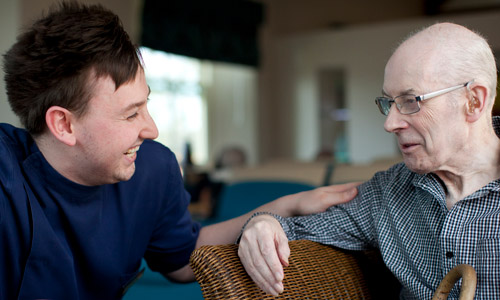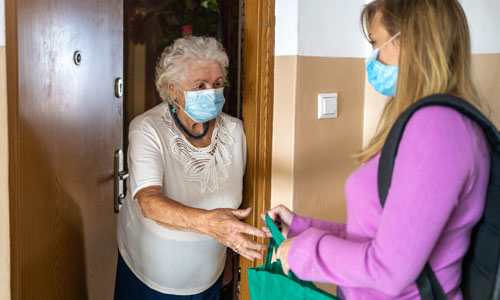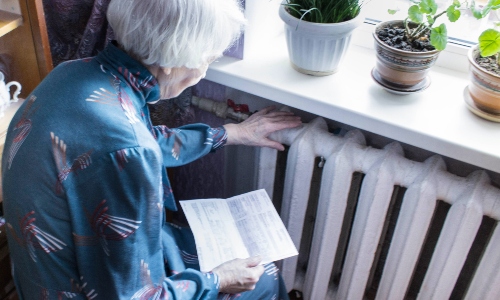The recent High Court ruling concerning the Government’s action in discharging older people from hospitals into care homes in spring 2020 was a really important moment. Issued on 27 April, it was significant not only for itself, but also because it was the first time that events during the pandemic came under judicial scrutiny.
There will be much more of this in the months and years to come, most notably during the Government-commissioned Official Inquiry. The Inquiry is to be chaired by Baroness Hallett, a retired Court of Appeal Judge, and will begin to take oral evidence in 2023.
Did the Government break the law?
In a complex judgment, the High Court found that while these discharges into care homes were lawful, the people in Government who drafted the policies and guidance at the time failed to take into account the highly relevant consideration of the risk to care home residents from ‘asymptomatic transmission’. The Court found that this omission was ‘irrational’ and held the Government at fault for breaching their duties under common law.
This was because the Court decided that there was enough scientific evidence in March and April 2020 for reasonable suspicion that a person could show no symptoms from the virus but still be able to infect others. For this reason it concluded that the Secretary of State for Health and Care – with whom the buck ultimately stopped – should have applied the precautionary principle and ordered a two week period of self-isolation for every discharged patient at that time.
There is no doubt that the failure to do this cost lives, possibly many lives. It was a tragic mistake and seemingly one that could have been avoided. It was corrected later that spring but by then considerable damage had been done.
The Secretary of State of the day was Rt. Hon Matt Hancock MP. Interestingly, evidence produced during the case showed that a more junior Minister, the then Minister of State for Social Care, Helen Whateley MP, did raise serious concerns about this risk. However, for whatever reason, she appears to have been overruled. Maybe the Official Inquiry will shed some light on why.
We need to understand why the system failed to do better in protecting older people After the High Court’s judgment was released on 27 April there was a flurry of media coverage and comment, with the focus on ‘who was to blame’. I feel it would be deeply unfortunate if the same approach dominates our public conversation about the Inquiry – i.e. a fixation with individual fault, to the neglect of wider system issues raised over our handling of the pandemic.
While there is a completely understandable desire to assign responsibility for the key decisions, especially if you suffered the loss of a loved one, for us at Age UK it is the systemic failings on which the pandemic shone some light that are our principal interest. However good their intentions, individuals will always make mistakes, especially when under exceptional pressure as during a pandemic, but if we’re to minimise the risks of terrible things happening again it is policies, processes, resource levels, cultures and attitudes which above all we need to scrutinise and, where necessary, seek to change for good.
Terrible things
And I am afraid that some terrible things definitely did happen during those two years, particularly early on, and particularly to some older people. When I say this I am thinking, for example, of the blanket ‘Do Not Attempt Resuscitation’ orders (DNRs) imposed on some groups of older people in some localities; the way in which during the first wave, some older people in care homes were left to die of COVID-19 without sufficient clinical support or sometimes access to palliative medicines; the effective bans in some places on older people being admitted to hospital, whether they had COVID-19 or not; and the fact that at one point in spring 2020 we got perilously close to a national policy on admissions to Intensive Care Units based heavily on age that would have meant anyone aged over 65 or 70 would probably have been denied access.
At Age UK we know about these things because older people and their families have told us about them, and sometimes clinicians and care staff and managers too. As a result, we know that there are some people in Health and Care, and in Government, in particular, who, looking back, feel deeply uncomfortable about decisions they made or didn’t make, or their own or other people’s actions, or the limited and incredibly difficult choices available to them or others as they tried to navigate their way through a nightmarish time, in the best and fairest way possible. When the Official Inquiry gets seriously underway in 2023 it’s crucial that these people feel safe to speak about their views and experiences and that they are listened to with understanding and respect.
There are other issues of concern from an older people’s perspective too; for example, the way in which throughout the pandemic, care home visiting was repeatedly halted in an effort to prevent the virus from spreading. At times these bans seemed disproportionate to the actual degree of infection risk. Sadly though, the result was that many care home residents were isolated from those they loved for long periods of time, causing them enormous distress and, in some cases, leading them to give up all hope or reason for living. Did we get the balance right, and are we getting it right now?
To reiterate, it is important to remember that in the spring of 2020, when most of the worst events occurred in some local areas, we faced a deadly threat in the form of COVID-19 which we knew little about and had few tools to combat; that all our health and care services were under enormous stress; and that decision makers faced impossibly difficult dilemmas. In short, it was a very frightening time, for which no one could have been fully prepared.
The rights and interests of older people were sometimes forgotten
Nonetheless, I think it is also fair to suggest that it is at times of crisis that the fundamental values in a society shine through. And herein lies the rub: for us at Age UK it quite often seemed during those early weeks and months that the rights and interests of older people were an afterthought, and that sometimes their lives were considered to be worth less because they were older. My comments here are about the position in England, but throughout the pandemic I was in frequent communication with colleagues across the UK and they quite often expressed similar concerns.
Looking ahead to the Official Inquiry
Age UK will certainly be making a very full submission to the Official Inquiry next year, detailing our own experiences and what we heard directly from older people and others during the pandemic. We will urge the Inquiry to spend some time considering three questions in particular:
- Was the apparent failure by policymakers in England to take into sufficient account the needs and interests of older people during the pandemic due, at least in part, to their complete lack of representation within Government structures? (No Minister for Older People, or Commissioner, or cross-cutting unit)
- Was another contributory factor ageism embedded deep within our culture and society, as shown by attitudes both within the NHS and also far beyond it as to who should be a priority within Health when resources came under acute strain early on in the pandemic?
- And finally, if older people’s human rights had been more expansive, better defined and properly communicated and understood, might the outcomes have been different?
Never Again
Crucially, in respect of all three questions, we need to ask ourselves what we can do and what we must do to ensure older people are never treated like this in our country again. That’s the prize and it’s vital that we grasp it. Nothing can restore the lives of the tens of thousands of older people who tragically died during the pandemic, but at least we can learn the right lessons, so we do better next time.
‘Never again’ must be our watchword and at Age UK we will do everything we can to ensure the Official Inquiry delivers the justice our older population deserves. We will also consider very carefully what all this means for our own work and priorities as a charity dedicated to serving older people, especially at the times when they most need us.





